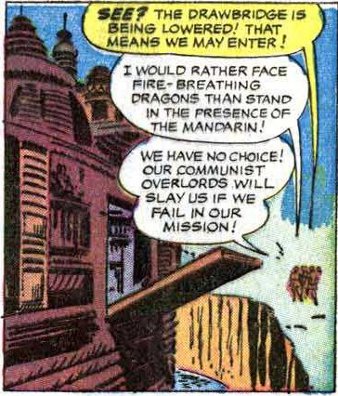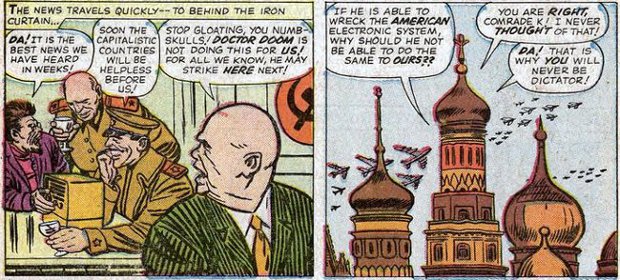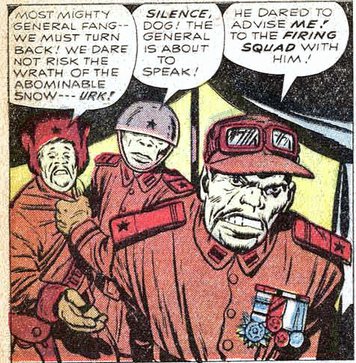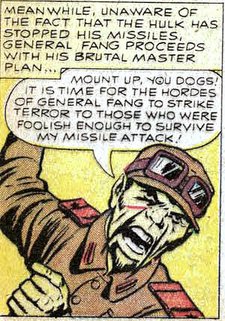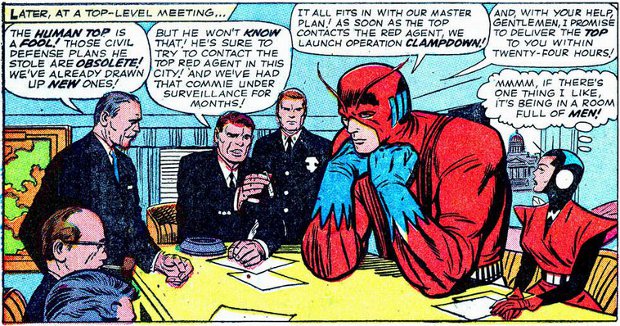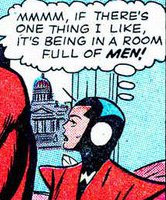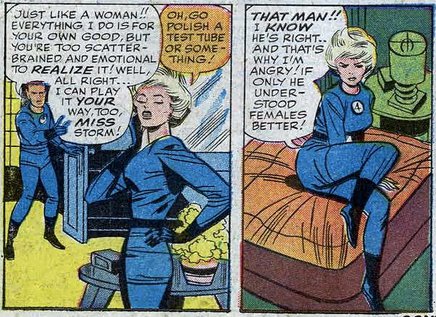
Ah, Reed Richards. Few characters have been as consistently portrayed as sexist, in mainstream superhero comics. It’s probably because he and Sue were one of the first “real” couples in superhero comics: they were already dating in the very first issue, and were married in the third annual (1965). Therefore, all the “morals” of the late 50s and early 60s could be seen in their relationship; other couples typically came much later, and the moral zeitgeist had, by then, progressed.
Here we see another great example: Reed (and he isn’t depicted negatively, therefore Stan Lee seemed to agree, at the time) treats Sue as if he was a parental figure (instead of a boyfriend, which he was at the time), and insults her entire gender by saying that women are “too scatterbrained and emotional to realize” how, basically, men know best. In other words, according to this view, women should look up to men, including steady boyfriends and husbands, in much the same way as children look up to their parents, trust them implicitly, and obey them, because parents are adults and are, therefore, the only ones who can be rational and responsible.
And what’s worse is that, in the next panel… Sue agrees! Even though she challenged Reed in the previous panel (with, you’ll note, a childish retort: “go polish a test tube or something!”), after she leaves she admits to herself that Reed was right, that he really knew what’s best for her, and that she — like all women — only didn’t accept it at the time because she’s “too scatterbrained and emotional”.
The early 60s, ladies and gentlemen! 🙂
